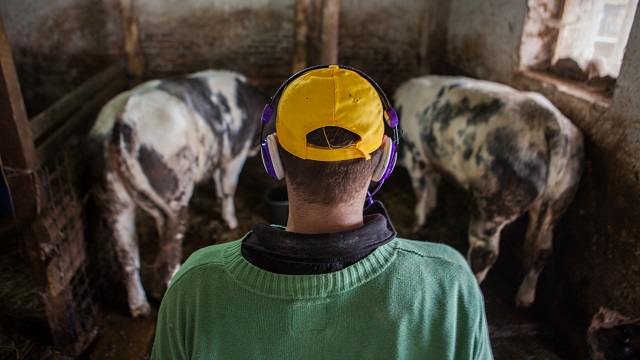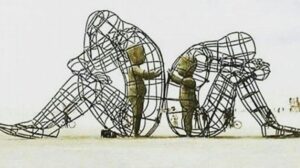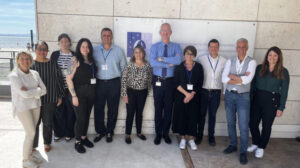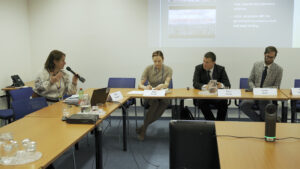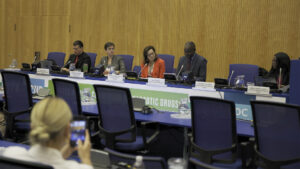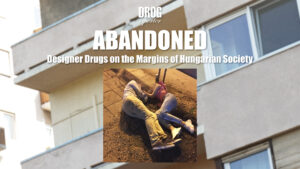The Romanian Blue Cross launched a free of charge rehab service, which was not accessible before in the country. Read Stefan Iancu’s, a former user and present helper at Blue Cross, experiences and opinion about the situation of rehab services in Romania.
Since the beginning of this year, the Romanian Blue Cross Association, which manages two rehab centers near Sibiu City, in Transylvania, has been running an unusual program: free-of-charge rehab services for alcohol and drug dependent people from disadvantaged and impoverished backgrounds, who can’t afford to pay for residential addiction treatment. While this type of service is hardly a novelty in other countries, where social and health insurance cover at least part of the costs of rehab services, it is a first for this country, with its notoriously underfinanced and inefficient public health system.
Whether one considers drug addiction an actual illness or not, it is an all-too-common reality. Often it is considered a problem by drug users themselves and by those close to them, whether a health issue or a psychological, social or even spiritual imbalance, and, as such, when they can’t recover by themselves, many look for some form of help or treatment.
This was also my case, back in 2010, after several years of using ketamine, and then the amphetamine-like stimulants which were legally available at the time in headshops all over Bucharest City. I was admitted on four occasions to the drug dependence section of the biggest psychiatric hospital in Bucharest, the notorious “lunatics” hospital, called “Obregia” – sometimes willingly, and other times not so much so. The hospital offers free-of-charge “detox” services, based on treatment with pharmaceutical drugs in a closed environment (bars on the windows, CCTV cams in every room, bodyguards), in rather poor conditions and with minimal psychological evaluation or treatment. Needless to say, every time I got out, I went straight back to shooting drugs. Then my parents found out about the Blue Cross rehab centre in Sibiu county, and offered to pay whatever was needed for me to stay there for a few months. I was more than happy to oblige, since I was quite desperate at the time. The four months I spent in Șura Mică village, among livestock, orchards, and daily group therapy sessions, did me a lot of good; even though I subsequently relapsed quite a few times, I was able to get back on my feet and gradaully get my social life back on track.
Mind you, this is not detox, but rehab: it is supposed to be the last link in the official treatment chain, after detox if needed – a community based on psycho-social therapy and treatment, such as group therapy, individual counselling and occupational therapy – rather than on psychiatric treatment. At the Blue Cross centres, there are no bars on the windows, and patients come and go as they please, although participation to daily activities is mandatory, and for the first two weeks one is not allowed to leave the centre unaccompanied. The only providers of such services in Romania are religion-inspired non-profit organisations, such as Teen Challenge and the Blue Cross. Altogether, they provide about 150 beds, and they often rely on contributions from patients to cover the costs of the treatment. The number of people in Romania who drink to excess is estimated to be in the hundreds of thousands, while, according to the National Anti-drug Agency, in 2013 there were about 6,300 problematic drug users in Bucharest alone. Often they belong to disadvantaged, impoverished and vulnerable social groups; and their families, if they have one, can’t afford to pay for rehabilitation treatment.
But I was lucky, since my parents receive a relatively good retirement pension and could also borrow money for the approx. 500 euro per month (the median income in Romania) that the Blue Cross centres charge paying customers. So, after being a patient, I became a volunteer for the centre in Șura Mică and I conceived a project intended to help precisely those alcohol and drug users who could not afford to get the help I got from my family.
It’s a very straightforward project: identify people with drug dependence who are motivated for treatment, but can’t afford it, and get them into rehab for two or three months. Since 2012, we have twice applied for grants from Norway, being rejected for the “lack of relevance” of the project’s objectives; but then, in the third year, the project won a grants competition funded by the Swiss-Romanian Cooperation Programme, with a non-repayable grant of roughly 75,000 Swiss Francs (approx. 68,500 EUR). We started in February 2016, and, for the first six months of this year-long project, aside from admitting people with drug dependence to rehab, we also trained the therapeutic team to deal with people from disadvantaged backgrounds and vulnerable social groups, introducing psychiatric consultation and art-therapy at the centres, as well as a few cultural and recreational events for all clients, in the long and sometimes tedious weekends at rehab.
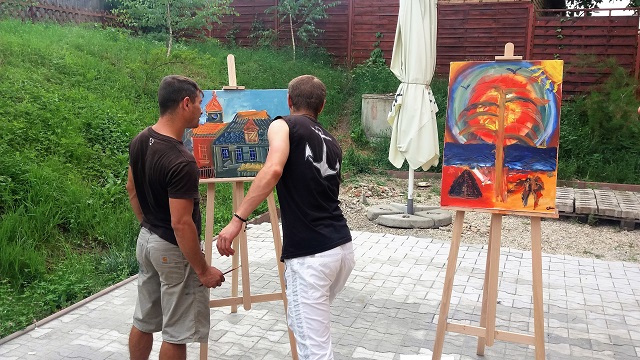
In total, we have so far been able to identify 50 people living with alcohol or drug dependence (usually heroin, synthetic cannabinoids, or amphetamine-like stimulants), who wanted to quit regular use, and who also met our financial criteria (less than 225 euro income per family member). Of these, we admitted 27 people to treatment, of whom about 20 completed more than one month and 8 completed three months of rehabilitation. The programme has a retention rate of almost 75%, which is good, about the same as for the regular paying customers of the centres. In the long run, it is likely that fewer than that will remain abstinent or at least cut back on using their drugs of choice, but in my experience, every single patient benefits from rehab treatment in some way.
Here is what Silviu, a 19-year-old Roma beneficiary from a village close to the Black Sea port of Constanța, had to say, after a three-month stay: “Staying there helped me, because, to begin with, I didn’t have enough information, I didn’t know what the methods were, and I wasn’t strong enough to quit drugs by myself. It helped me to discover myself and my abilities, to treasure my life and my family more, to be happy I am alive. The staff helped me enormously, because they really get involved; group therapy also helped me a lot, in the way it combines fun and work, psychology and spirituality.” Since getting out of rehab, Silviu has been able to hold down a steady job as a waiter, and is now preparing for his driving test. Another example of successful treatment is Vasile, a 45-year-old mason from the city of Sighișoara, who had lost his job because of his alcohol addiction, and who went back home after two months of treatment, to help his wife around the house, while waiting for a new job oportunity. There were also disappoinments, of course – cases where people left after a week at the centre, or clients who relapsed after completing the maximum three months of treatment. There was a patient who got permission to go on holiday abroad for a few days and then got arrested, another who got permission to go back home for the weekend and never returned. Another young Roma person, formerly homeless and HIV+, fell gravely ill and had to be hospitalised with suspected tuberculosis.
There are many things we learned while managing this project. First, we came to realise how difficult it is to find people who use alcohol and drugs problematically but are willing to undergo treatment, in a country where the population is generally unaware of dependence as a health issue or of rehab as an effective way of addressing it. While most people are suspicious of psychological treatment and of the whole health system, it is in the very nature of dependence, that people who suffer from it have little motivation to put a stop to it or to seek help. We didn’t get as many requests for rehab as we were expecting, even though it was free of charge, in a country where alcohol use is number 5 in the world, according to the WHO, and where drug use is on the increase. Then, we learned that the people who most need help, because of their poor education and economic and social status, are often the ones who benefit the least from rehab treatment, while others who are perhaps not so socially disadvantaged may benefit a lot more – which always makes it tough selecting participants. We also learned that discrimination, based on social status, ethnicity, or sexual orientation, can be hard to deal with, because addressing the beliefs, values and behaviours of both staff members and patients themselves is a delicate and risky business. Often, it is the very patients belonging to socially-vulnerable groups who are most likely to perpetuate discrimination against others.
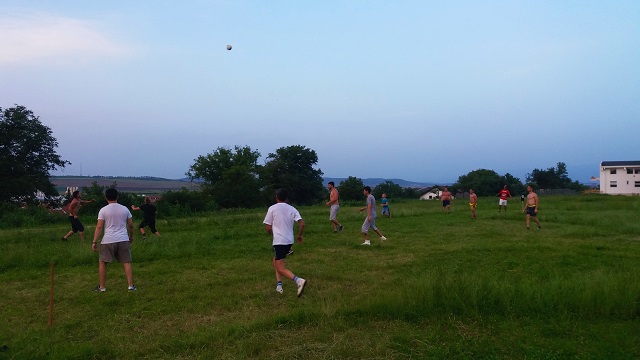
Finally, since the Blue Cross is a religion-inspired organisation which teaches abstinence-based recovery, let me say a few words on this topic. Virtually all rehab communities in Romania are managed by religious organisations, such as the neo-Protestants’ Teen Challenge or the Catholic Bonus Pastor, and sometimes treatment is indeed thoroughly infused by religious practice. In contrast, the Blue Cross is a non-denominational Christian organisation, offering for the most part non-religious treatment (without daily prayers, church sermons and so on), where spiritual religious counselling is available only once a week for those patients who choose it. And most alcohol and drug dependent people do choose it: it is they who bring up the subject of faith, and ask for a religious component in the recovery process, in addition to psychological counselling and occupational therapy. Also – while there is, understandably, a great deal of mutual suspicion and mistrust between those professionals who practise an abstinence-based approach to drug dependence, and those opting for a harm reduction approach, there is also a sense in which the two approaches should rather complement than exclude each other. The Blue Cross, and other organisations offering abstinence-based rehab, do endorse harm reduction practices such as neutral and objective education, needle exchange, and so on, while harm reduction organisations should also accept that abstinence has a part to play in the treatment of people with a long history of problematic use of alcohol and drugs such as heroin, for whom other treatment methods have failed. Nevertheless, I do believe that state-funded non-religious rehab treatment is a necessity in Romania and should be available, ideally free of charge, covered by basic health insurance. As part of the Blue Cross project for drug dependents from disadvantaged backgrounds, we also advocate for state-sponsored rehab services in Romania.
Ștefan Iancu
